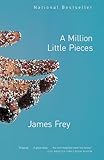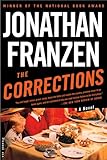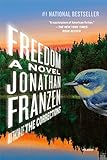1.
The office of literary agent Ellen Levine is a sun-struck jewel box of a place overlooking Madison Square Park and lined with shelves of signed first editions by Levine’s many famous clients, including Marilyn Robinson, Russell Banks, and Michael Ondaatje. Despite these trappings of power — that view, that big desk, the young editorial assistant who ushers you in with a hushed reverence that suggests you are being granted an audience with the pope — Levine is herself unpretentious and approachable. She is a small person, bird-like and soft-spoken, and when she settles in at a conference table, her manner suggests not a big-wheel New York literary agent but a college professor taking time out of her day to sit with you in her office and talk about books.
I had invited myself to Levine’s office one sunny April morning last year to interview her for the first in a series of features I was writing for Poets Writers Magazine called “The Aha! Moment.” The idea was that I would talk to writers, editors, and literary agents about the moment the light went on for them about a particular manuscript, the moment when they thought, I have to do this project. I had asked Levine to pick a novel by a new client and show me at what point — where exactly, on what page — she decided she had to take this writer on. Then we would print that manuscript page in the magazine, with Levine’s quotes explaining how the writing had grabbed her and why.
As we sat down to discuss the page in question, midway into the first chapter of a first novel by an unknown African-American writer living in Brooklyn, Levine described the writer’s command of language and storytelling craft, but when she reached a key passage in the scene, in which a young mother is about to lose her twin babies to pneumonia, Levine’s voice caught. When I looked up, her eyes had misted over. If you interview a lot of people, you develop a radar for when people are selling and when they are not, and in this case Ellen Levine was not selling. She was genuinely moved by this scene in an unpublished book by a writer nobody had ever heard of. I left her office that day thinking: Something really, really good is going to happen to that book.
 Sure enough, eight months later, I read that the book Levine and I had been discussing that day, The Twelve Tribes of Hattie by Ayana Mathis, had been published in December, six weeks ahead of schedule, and had been picked by Oprah Winfrey for her newly rebooted Book Club. This weekend — on Super Bowl Sunday, of all days — Mathis will sit for an interview with Winfrey to discuss the book.
Sure enough, eight months later, I read that the book Levine and I had been discussing that day, The Twelve Tribes of Hattie by Ayana Mathis, had been published in December, six weeks ahead of schedule, and had been picked by Oprah Winfrey for her newly rebooted Book Club. This weekend — on Super Bowl Sunday, of all days — Mathis will sit for an interview with Winfrey to discuss the book.
2.

 Long before Jonathan Franzen famously dissed her for picking his novel The Corrections for her Book Club and James Frey’s pseudo-memoir A Million Little Pieces blew up into, well, a million little pieces, Oprah and her Book Club were the subject of an unseemly mix of love and hate from the publishing industry as well as from many readers of literary fiction. On the one hand, Oprah clearly moved product. An astonishing amount of product. According to one study by Fordham University marketing professor Al Greco, during the 15 years Winfrey ran the Book Club before she shut it down along with her syndicated show in 2011, the 69 “Oprah Editions” embossed with the signature Book Club seal sold roughly 55 million copies.
Long before Jonathan Franzen famously dissed her for picking his novel The Corrections for her Book Club and James Frey’s pseudo-memoir A Million Little Pieces blew up into, well, a million little pieces, Oprah and her Book Club were the subject of an unseemly mix of love and hate from the publishing industry as well as from many readers of literary fiction. On the one hand, Oprah clearly moved product. An astonishing amount of product. According to one study by Fordham University marketing professor Al Greco, during the 15 years Winfrey ran the Book Club before she shut it down along with her syndicated show in 2011, the 69 “Oprah Editions” embossed with the signature Book Club seal sold roughly 55 million copies.
So much for the love part. Franzen, thoughtless as his comments may have been, was only saying out loud what many others had been saying when he suggested Winfrey had larded her list with “schmaltzy, one-dimensional” novels, directed primarily at women readers. At the time, the blowback at Franzen was all about him being an elitist, but I always thought there was a gendered element to the knock on Oprah books. Franzen, and many others, said the books were middlebrow and directed at women, but to my ears, anyway, there was a strongly implied causal relationship between the two: the books were middlebrow because they were directed at women, as if serious fiction — the kind written by Hemingway and Faulkner — was for guys while anything written with a female audience in mind was, almost by definition, middlebrow.

 After the Franzen dustup, Winfrey started devoting fewer shows to books, and after the James Frey debacle, she pulled back even further, picking only a few books a year and relying more heavily on established classics like Elie Weisel’s Night or novels by guy-friendly authors like Gabriel Garcia Marquez and Cormac McCarthy that countered the stereotype of an “Oprah book.” By the time she invited Franzen back on her show in 2010 to discuss his novel Freedom, she just seemed weary of the whole thing.
After the Franzen dustup, Winfrey started devoting fewer shows to books, and after the James Frey debacle, she pulled back even further, picking only a few books a year and relying more heavily on established classics like Elie Weisel’s Night or novels by guy-friendly authors like Gabriel Garcia Marquez and Cormac McCarthy that countered the stereotype of an “Oprah book.” By the time she invited Franzen back on her show in 2010 to discuss his novel Freedom, she just seemed weary of the whole thing.
3.
In many ways, The Twelve Tribes of Hattie, the second book picked for the rebooted Book Club 2.0 featured on Winfrey’s eponymous Oprah Winfrey Network, neatly fits the stereotype of an “Oprah book.” For one thing, Hattie focuses on a damaged family, as so many previous Oprah picks have, and like a number of earlier picks, it is set in black America. A cynic — and don’t pretend there aren’t a few of them among you — might even go so far as to say that Hattie is a perfect Oprah book because it is the sort of book about black people that white people like to read, meaning one that allows white readers to bear witness to, and passionately decry, America’s long history of racial oppression without feeling personally indicted for playing any role in that oppression.
It is true that much of Hattie is set safely in early and mid-century America, before many contemporary readers were even alive, and the passages that deal with the most straightforward white racism take place in the South, which allows liberal northerners to blame such ugly behavior on those white people, who are of course nothing like themselves. But such calculations, and indeed all the baggage that comes with being an “Oprah book,” are unfair to the novel Mathis has written, which is a dazzling debut, rich in language and psychological insight, steeped in the history of 20th-century black America and black American writing, and yet fully in tune with a 21st-century America capable of twice electing a black man president.
Hattie is being marketed as a novel, but it would be more accurate to say that it is a collection of linked stories revolving around the dysfunctional Shepherd family, starting in 1925 and ending in 1980. There isn’t a truly weak story in the lot, but the book is best when its central figure, the hard-hearted “plow horse” of a matriarch, Hattie Shepherd, is present, and loses some of its vitality when she is not.
We first meet Hattie in that heartbreaking opening chapter when she is a joy-filled 16-year-old escapee from the Jim Crow South imagining how when her newborn twins, Philadelphia and Jubilee, begin to walk they will “totter around the porch like sweet bumbling old men.” This moment of dreamy bliss lasts barely a page before the twins come down with pneumonia, and Hattie, crippled by her inexperience and pride, fails to save them. Hattie goes on to have nine more children — far more than she and her sweet, but feckless husband August can support in Depression-era black Philadelphia — but the twins’ deaths mark her, turning her into a cold, rage-filled woman capable of beating a child until he wets himself in terror for having left a window open in the rain.
But Hattie isn’t a villain, nor is she a helpless victim of her circumstances. She comes alive on the page in all her complexity as a woman fiercely determined to never let another child slip away, but neither strong nor resourceful enough to keep them alive without terrorizing them within an inch of their lives. “Hattie knew her children did not think her a kind woman,” Mathis writes late in the book.
She had failed them in vital ways, but what good would it have done to spend the days hugging and kissing them if there hadn’t been anything to put in their bellies? They didn’t understand that all the love she had was used up in feeding them and clothing them and preparing them to meet the world.
The Twelve Tribes of Hattie has its share of stock figures — child preachers whose touch can heal the sick, good-time men who live for the gambling table, and loose-living women who shack up with criminals — but it is Mathis’s gift to breathe life into these characters, render them in three dimensions as ordinary people striving to be decent but lacking the strength of character or willpower to get there. They are often very destructive and Mathis is too clear-eyed a writer to turn away from the wreckage they leave behind or to pass off their recklessness as a mere product of racism and poverty. But she doesn’t pass judgment on them, either. Mathis’s characters are those rarest of fictional creations: real living, breathing people.
4.
A central element of the Oprah Book Club narrative has always been the sudden reversal of fortune experienced by those lucky few Oprah authors. The poor wretched scribe, the tale goes, was toiling away in obscurity in the backwaters of American literary culture until one day the phone rings, and — Oh, my God! — “Hi, this is Oprah.”
Whether this narrative was ever really true of the earlier Oprah picks is debatable, but it is certainly not true in the case of Mathis who is a graduate of the Iowa Writers Workshop and a client of Ellen Levine, one of the top literary agents in New York. I have exactly zero knowledge of what levers Levine pulled, but it is hard to imagine that an agent as well-connected as Levine, sitting on a book as good as Mathis’s, could have resisted at least suggesting to one of Winfrey’s show bookers that they might want to give this book a read.
But if this plucked-from-obscurity narrative is partly a media fiction, it does point up a fact Oprah’s detractors would do well to keep in mind: while Winfrey has occasionally leaned on books by Nobel laureates like Faulkner and Toni Morrison, the bread and butter of the Book Club was always new books by little-known authors. Try this at home sometime. Tell yourself you need to pick a book that will appeal to millions of readers, by an unknown author who will be interesting to talk to for an hour on national television, but who has also written a serious work of literary fiction. And then tell yourself you need to do this once a month while running the highest-rated talk show in the history of television. Let me know how that works out for you.
It is high time defenders of American literary fiction cut Oprah Winfrey a break. These days, even Oprah is no longer Oprah, and while Mathis’s novel has shot up into the bestseller lists, it is unlikely stay there for months the way books did in the Book Club’s 1990s heyday. Still, imagine what would have happened if Winfrey hadn’t picked it. It still would have garnered raves from reviewers in print and online, and over time booksellers would have begun quietly putting it in the hands of favored customers. In other words, it would have remained a well-kept secret among a bookish few. Instead, thanks to Oprah Winfrey, The Twelve Tribes of Hattie will be read by hundreds of thousands of people and Mathis will sit down for a well-publicized interview on the high holiest day in the American television calendar, Super Bowl Sunday. With any luck, this gritty, tough-minded work of literary fiction that also happens to be a mesmerizing read will enter into the cultural mainstream. Who else but Oprah could pull that off?



